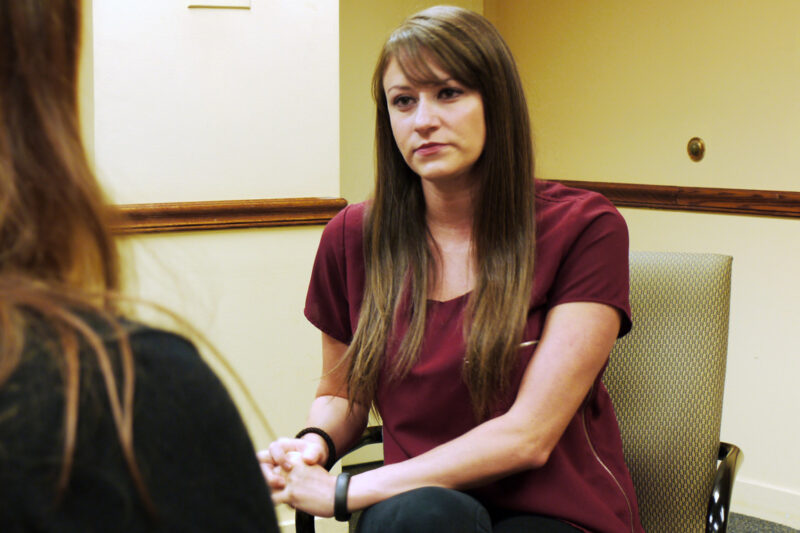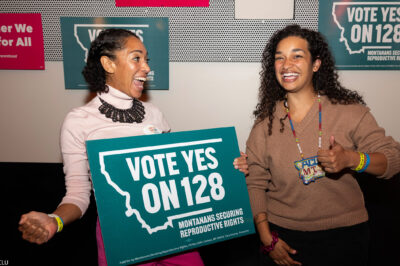
Last December, I slipped on water on my bathroom floor and fell hard onto the tile. Later that night, I felt cramping in my back and abdomen. The next morning I was bleeding. After doing some online research, I feared my intrauterine device (IUD) was dislodged. I knew I needed to see a doctor.
I did what anyone would do — I called an OB-GYN in my insurance network and made the soonest appointment I could. The doctor examined me briefly and confirmed my suspicion that my IUD had become dislodged. She said it needed to be removed.
However, instead of removing the IUD, the doctor said she couldn’t help me. Her hands were tied because of religious restrictions imposed on her practice by Mercy Hospital and Medical Center. She explained that those restrictions prohibited her from removing the IUD because it was being used solely to prevent pregnancy.
I was shocked.
I kept waiting for the moment when my doctor would say “But, in this instance, we will make an exception.” That moment never came. I asked if she could refer me to someone who could help me, but she said she could not. After speaking with her colleagues to confirm it, she said that all of the health care providers in my network followed the same religious restrictions. She explained that my only option was to change my insurance network and said I was “lucky” because it would only take a month to make the change.
I didn’t feel lucky. I felt shocked, judged, and angry. I left my appointment feeling worse than when I arrived — stigmatized, in pain and bleeding, facing the prospect of waiting an entire month before I could get the care I needed. My options were limited. I could not afford an expensive trip to the emergency room or an out-of-network visit to another health care provider.
Thankfully, I was connected to the ACLU of Illinois. I spoke with a lawyer, who suggested that I contact my insurance company and ask for an expedited change of my health insurance network so that I could receive the care I needed. After more than 5 hours on the phone with my insurance company, repeating the details of my story over and over to a litany of strangers, I finally got approval to switch my network. Thankfully, I was able to have my IUD removed, but it took more than two weeks from my initial fall on the bathroom floor.
Before this experience, I never understood the breadth of limitations imposed in religious health care facilities. I certainly never imagined that a doctor would refuse to remove my dislodged contraceptive device on the basis of religious objections. I do not want to imagine what could have happened to me if the pain and bleeding caused by the dislodged IUD became more severe or what could happen to other women like me who go to Mercy seeking health care and do not have the resources I had.
I am speaking out now so people know what I didn’t before this ordeal — that this can happen to any woman. The Catholic restrictions at Mercy and other hospitals are broad, and such hospitals control a wide range of health care services. I was fortunate to have made my way to the ACLU of Illinois, and that my insurance company switched my network so that I could have my IUD removed. Not everyone will be so fortunate.
How much pain and suffering will women need to endure before these Catholic health care providers change their practices?





